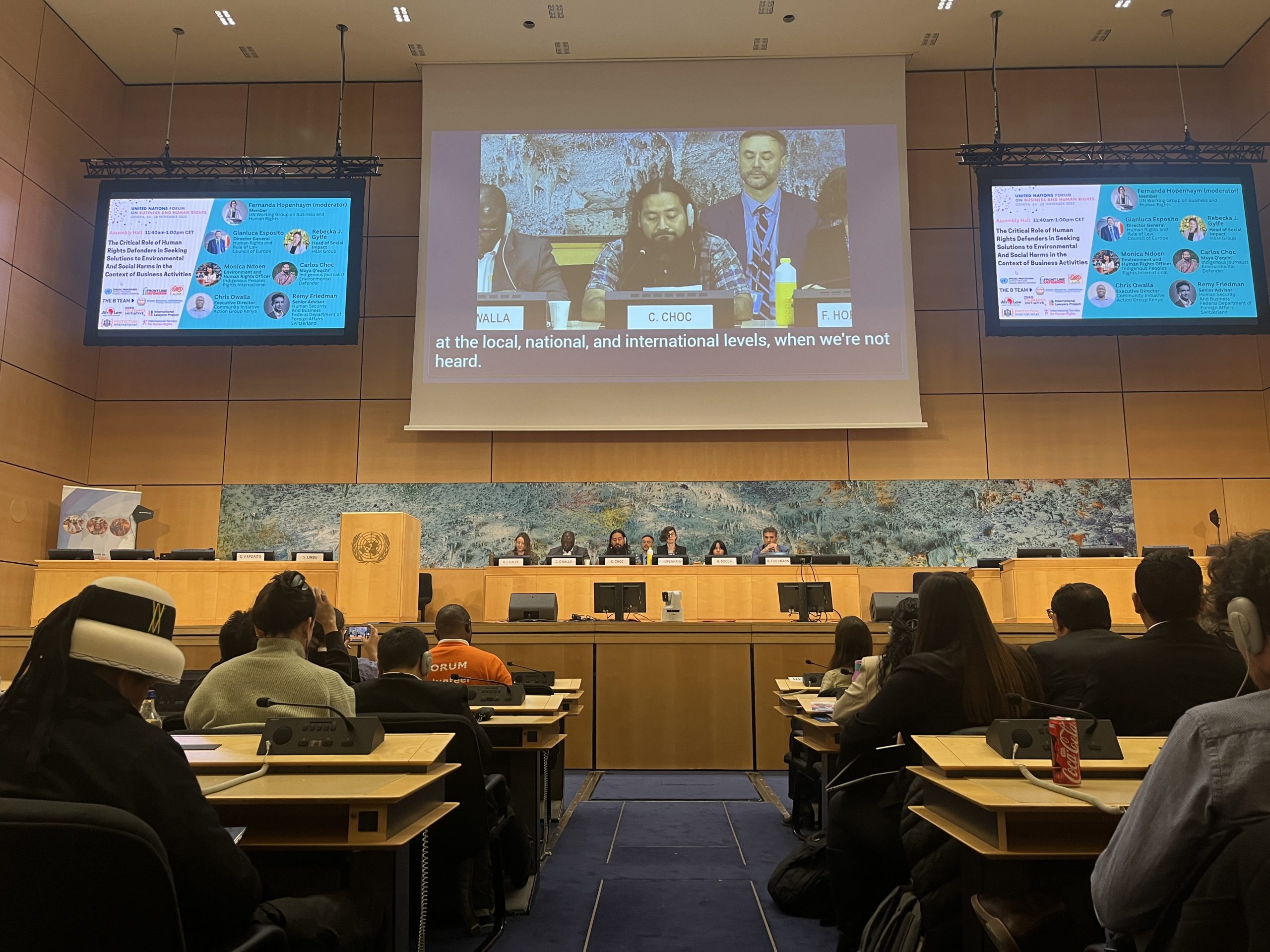Read the joint statement below:
Following its long overdue release, we welcome the recent publication of the update to the United Nations database of businesses facilitating Israeli settlements in the Occupied Palestinian Territory, issued by the Office of the High Commissioner for Human Rights on 30 June 2023. This release represents an important step forward, and it is crucial that future updates are conducted annually, ensuring accurate and comprehensive information for all stakeholders involved.
Human Rights Council resolution 31/36, adopted in 2016, clearly provides that the database of business activities should be updated annually, thereby contemplating regular reporting and both the addition and removal of businesses from the database, as appropriate. However, the first report under this mandate was released in 2018, and had only presented an outline of the methodology for the database. Two years later, in 2020, the database itself was first released, and no additional updates were published by the Office of the High Commissioner until 30 June 2023. Had the mandate been properly implemented, this year would have seen the seventh substantive report of the database, not its second.
The full implementation of the database mandate has been derailed over the years, primarily due to inadequate political will and ostensible bureaucratic obstacles. These challenges have emerged within a highly pressurised environment, in which certain states have demonstrated hostility to the implementation of the mandate. This has served to shield Israel and those companies benefiting from or contributing to Israel’s internationally wrongful acts from their international legal responsibilities, and thereby, entrenching the culture of impunity for these abuses.
The chronic under-implementation of this mandate has been damaging, to the integrity and credibility of both the Office of the High Commissioner and the Human Rights Council. It is unacceptable, and sets a dangerous precedent, that a mandate of the Council is largely ignored, especially over such an extended period. We understand that the budgetary process may have initially been flawed, failing to adequately account for the scope of ongoing activities. This flaw, however, lies within the budgetary process itself, and not within the resolution or the mandate issued by the Council. If the issue genuinely had been a matter of budgetary constraints, an administrative solution could have, and should have, been found to address it appropriately.
In this context, we welcome the fact that the Office of the High Commissioner has finally published an update on 30 June. We are heartened to see that, according to the report’s analysis, fifteen businesses may have ceased conducting reportable activity during the reporting period, though note that some companies may have adjusted their business structures to avoid falling within the definition of reportable activity. Indeed, this demonstrates the significant impact the database can have in encouraging and promoting compliance with international law. We are concerned, however, that the Office of the High Commissioner has not undertaken the work to identify new businesses that began, during the reporting period, to conduct reportable activity. Such a one-sided approach is not consistent with the mandate of providing a comprehensive update to the Council and runs the risk of being abused by business actors seeking to avoid listing.
The status quo of inadequate implementation of this crucial mandate is unsustainable.
Therefore, we urge the High Commissioner and States engaging at the Human Rights Council to act with urgency to find a solution that enables the full implementation of the existing mandate in resolution 31/36, with clear and regular reporting deadlines, based on sustainable funding for the necessary work. To this end, we welcome the initiative by the Palestinian Mission to table a resolution at the current session of the Council, to facilitate the full and regular implementation of the mandate that was set forth in Human Rights Council resolution 31/36. We urge all States to join in supporting this initiative, to ensure the integrity of mandates of the Council, and demonstrate their commitment to protecting human rights and promoting accountability universally.
The database is a crucial tool for the promotion and protection of the human rights of the Palestinian people. In the Occupied Palestinian Territory, as in other cases of apartheid and belligerent occupation, the absence of accountability has enabled the Occupying Power, Israel, to engage in activities in violation of international law with near total impunity. This has also allowed many private actors, including businesses, to contribute to and benefit from, sometimes unwittingly, gross human rights violations. The 2013 report of the UN commissioned International Fact-Finding Mission to investigate the implications of the Israeli settlements on the human rights of the Palestinian people, found that “business enterprises have, directly and indirectly, enabled, facilitated and profited from the construction and growth of the settlements”. This has detrimentally affected the lives of millions of Palestinians, and contributed to violations of international law. The database, if properly implemented, can be an effective tool in supporting companies in assessing their activities and carrying out their enhanced human rights due diligence, and serving as an example and point of reference for other situations.
Endorsed by:
- Al-Haq
- Amnesty International
- Cairo Institute for Human Rights Studies
- Human Rights Watch
- International Service for Human Rights
Download as PDF




